Physical Address
304 North Cardinal St.
Dorchester Center, MA 02124
Physical Address
304 North Cardinal St.
Dorchester Center, MA 02124
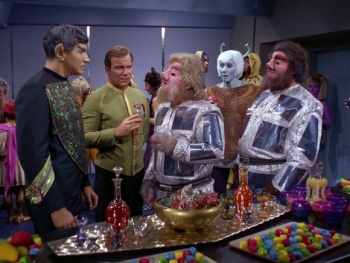
“Journey to Babel” is one of the most acclaimed episodes from the early years of Star Trek, originally airing during the show’s influential second season. This classic story introduced fans to Spock’s parents and brought together key elements that would define the franchise, featuring memorable performances from guest stars like Jane Wyatt and Mark Lenard. Alongside episodes such as “The Deadly Years” and “Friday’s Child,” “Journey to Babel” helped expand the Star Trek universe and its complex characters. The episode’s legacy has echoed through later series, including Star Trek: Deep Space Nine’s “Babel,” cementing its place in sci-fi history.
“Star Trek: Journey to Babel” is a standout episode from the original series that blends political intrigue with personal drama. The Enterprise is tasked with transporting various Federation ambassadors to a conference on the neutral planet Babel, where they must decide the fate of Coridan, a mineral-rich world seeking Federation membership. This setup introduces a tense atmosphere filled with diplomatic quarrels and hidden agendas, reflecting the complex politics of the Federation itself.
What makes this episode especially memorable is its focus on Spock’s family, bringing a deeply personal layer to the story. Spock’s parents, Ambassador Sarek and Amanda, are aboard, and their strained relationship with Spock adds emotional depth. Unknown to Spock, his father is seriously ill, which heightens the stakes when a spy aboard the Enterprise triggers a dangerous attack. Spock must step up in command while also dealing with his father’s medical emergency, showcasing his character’s strength and vulnerability.
The episode also introduces the Romulans in a suspenseful plot involving espionage and sabotage, culminating in a dramatic confrontation. Beyond its thrilling storyline, “Journey to Babel” enriches the Star Trek universe by highlighting the diversity and political complexity of the Federation, making it a fan favorite for both its action and character development.
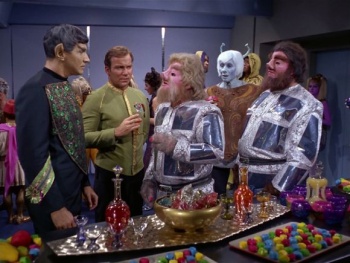
“Journey to Babel,” the tenth episode of Star Trek’s second season, is a standout for many fans and critics alike. It centers on the Enterprise transporting various Federation diplomats to a conference on the neutral planet Babel, where they must decide the fate of Coridan, a mineral-rich world seeking Federation membership. The episode masterfully blends political intrigue with personal drama, notably introducing Spock’s parents, Ambassador Sarek and Amanda, which adds emotional depth as Spock grapples with his Vulcan and human heritage. The tension escalates with a mysterious spy aboard and an attack by a cloaked Romulan ship, leading to suspenseful moments where Spock temporarily commands the Enterprise while his father undergoes a critical medical procedure only Spock can perform. The episode also enriches Star Trek lore by introducing new species like the Andorians and Tellarites. Despite some critiques of the sabotage subplot, the episode is praised for its balanced storytelling, strong character development, and its anticipation of themes later explored in Star Trek VI: The Undiscovered Country. Overall, “Journey to Babel” remains a dense, engaging, and essential episode in the Star Trek canon.
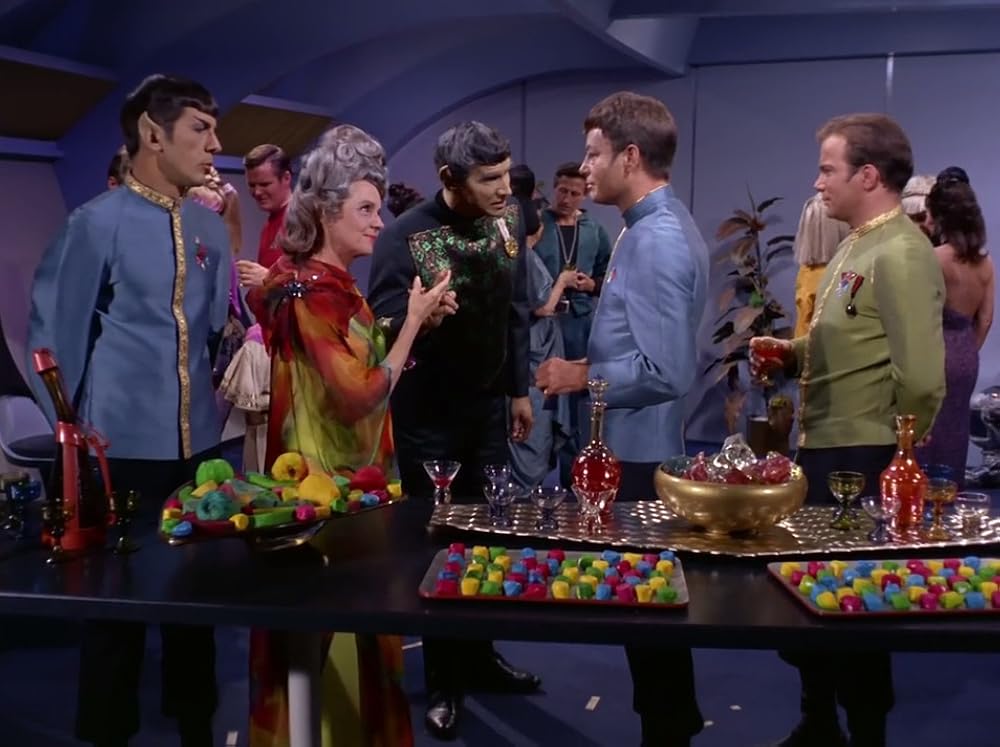
“Journey to Babel” is a standout episode from the second season of Star Trek: The Original Series, written by D.C. Fontana. It centers on the USS Enterprise transporting Federation ambassadors to a conference on the planet Babel, where they debate admitting the Coridan system into the Federation. The episode masterfully blends political intrigue with personal drama, especially focusing on Spock’s relationship with his parents, Ambassador Sarek and his human wife Amanda. Their strained father-son dynamic adds emotional depth to the story, revealing Sarek’s disappointment in Spock’s choice to join Starfleet instead of the Vulcan Science Academy.
The plot thickens when the Tellarite ambassador Gav is murdered aboard the Enterprise, and suspicion falls on Sarek. This accusation worsens Sarek’s heart condition, requiring an urgent operation where Spock must donate blood. Meanwhile, the Enterprise is shadowed by a mysterious ship, leading to tense space battles and a spy onboard. Captain Kirk is even attacked and temporarily incapacitated, forcing Spock to take command and navigate both the external threat and his family crisis. The episode balances suspense, action, and heartfelt moments, making it a fan favorite that explores loyalty, duty, and reconciliation.
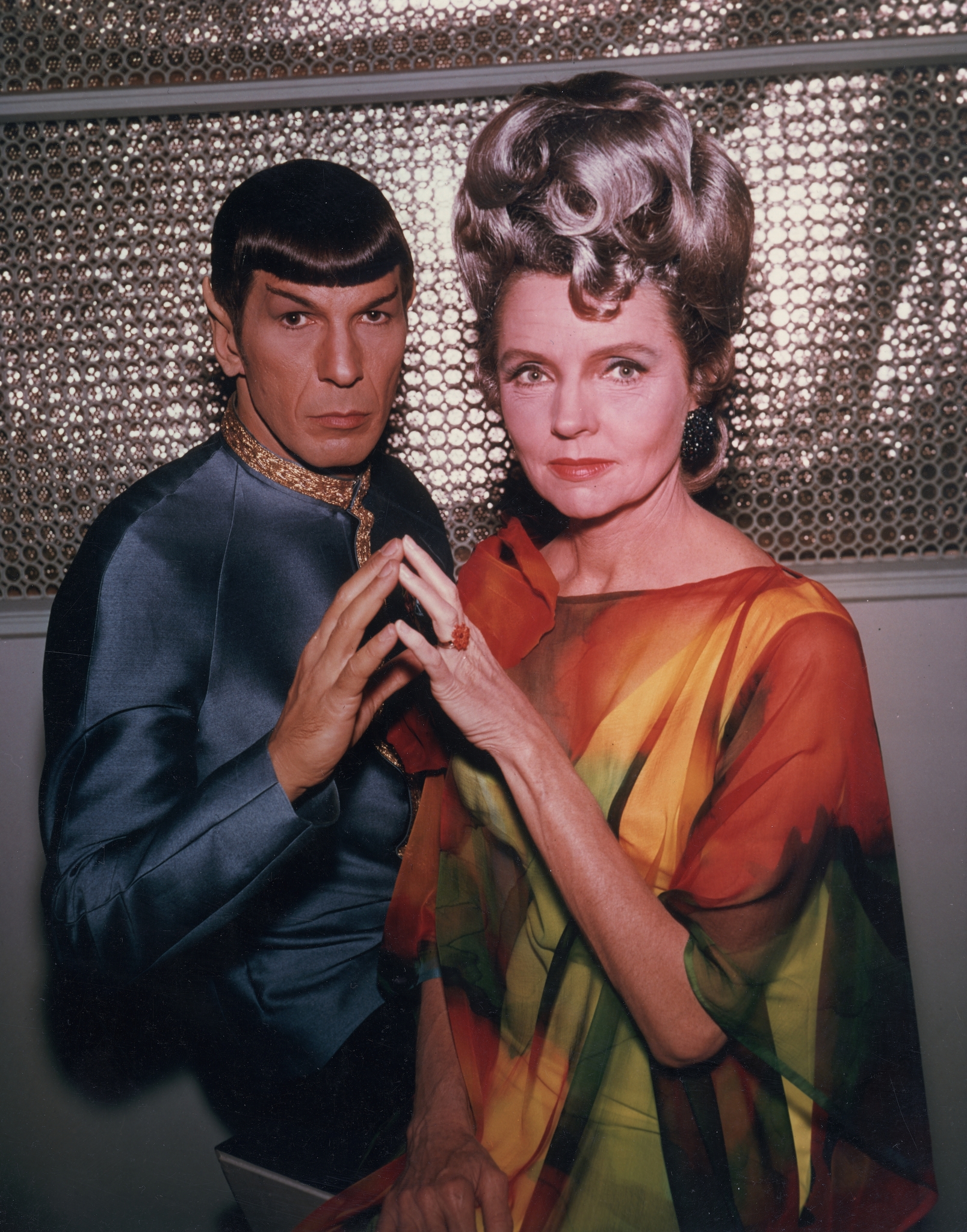
“Journey to Babel” is a standout episode from Star Trek: The Original Series that masterfully blends political intrigue with personal drama. The USS Enterprise is tasked with transporting various Federation ambassadors to a critical conference on the neutral planet Babel, where they must decide the fate of Coridan, a mineral-rich world seeking Federation membership. The episode quickly escalates as the Enterprise is attacked by an unknown alien ship, and a Tellarite ambassador is mysteriously murdered, sparking a tense investigation onboard.
What makes this episode especially memorable is its deep dive into Spock’s family life. We finally meet his father, Sarek, and his mother, Amanda, which adds a rich emotional layer to the story. Sarek suffers a serious heart condition requiring surgery, and Spock must confront his complicated feelings while also serving as a blood donor to save him. Meanwhile, Captain Kirk deals with his own wounds and the mounting external threats, creating a pressure-cooker scenario that reveals the characters’ true strengths and vulnerabilities.
Critics and fans alike praise “Journey to Babel” for its mix of high-stakes adventure, political tension, and heartfelt family dynamics, making it one of the most essential and beloved episodes of the original series.
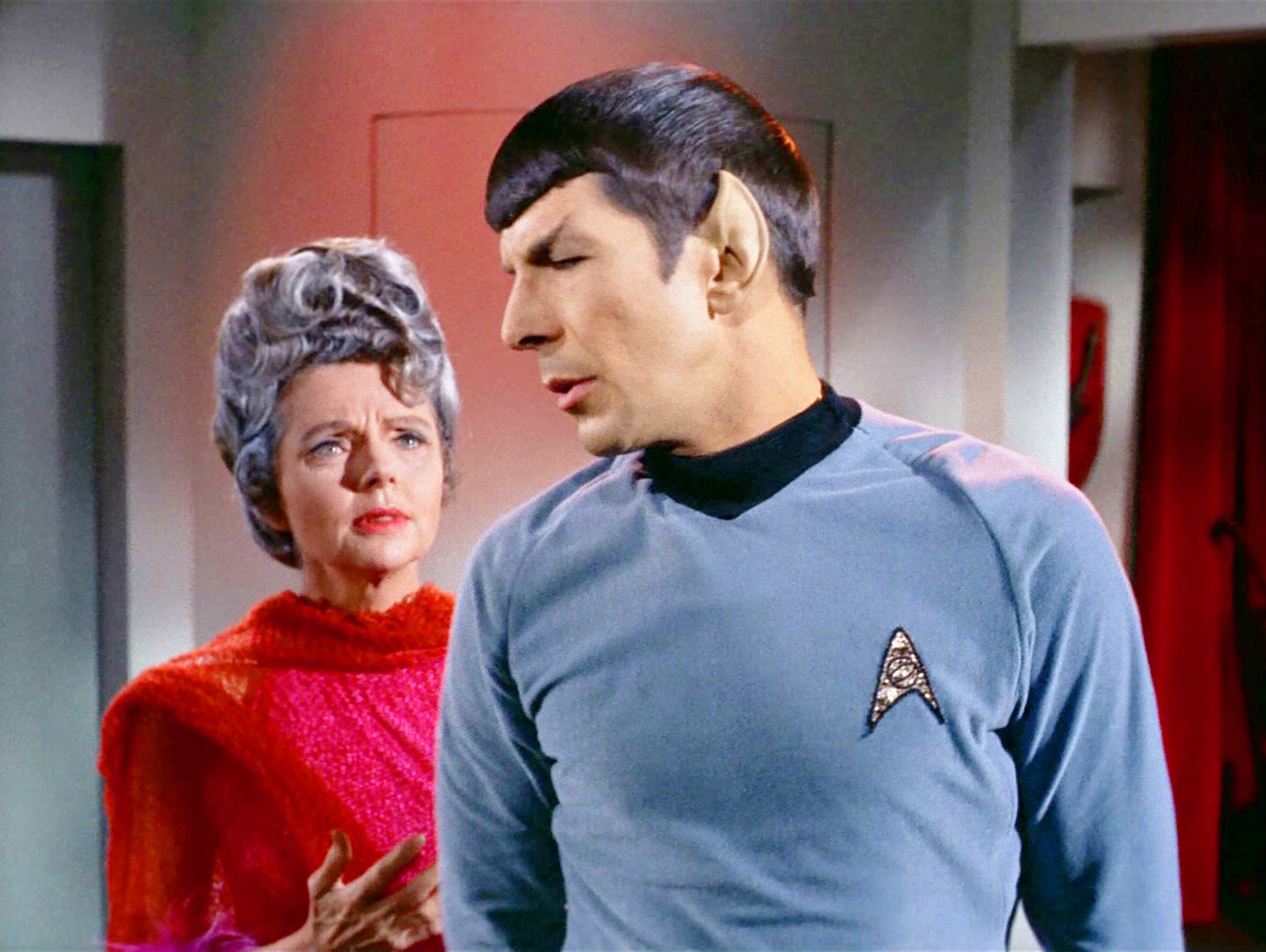
Jane Wyatt was an American actress best remembered for her warm and charming role as Margaret Anderson, the ideal TV mother on the classic 1950s sitcom Father Knows Best. Born in 1910 in Campgaw, New Jersey, she grew up in Manhattan in a well-to-do family and attended the prestigious Chapin School and Barnard College before pursuing acting. Wyatt began her career on Broadway, gaining early success in plays like Dinner at Eight, and soon transitioned to Hollywood, where she appeared in notable films such as Frank Capra’s Lost Horizon (1937) and Gentleman’s Agreement (1947).
Despite facing blacklisting in the early 1950s due to her liberal views, Wyatt found a new home in television, where her portrayal of a kind, intelligent, and composed mother resonated deeply with audiences. Beyond Father Knows Best, she also appeared in Star Trek as Amanda Grayson, Spock’s human mother. Over her long career, Wyatt won three Emmy Awards, a testament to her talent and enduring appeal. She passed away in 2006 at the age of 96, leaving behind a legacy as one of television’s most beloved maternal figures.
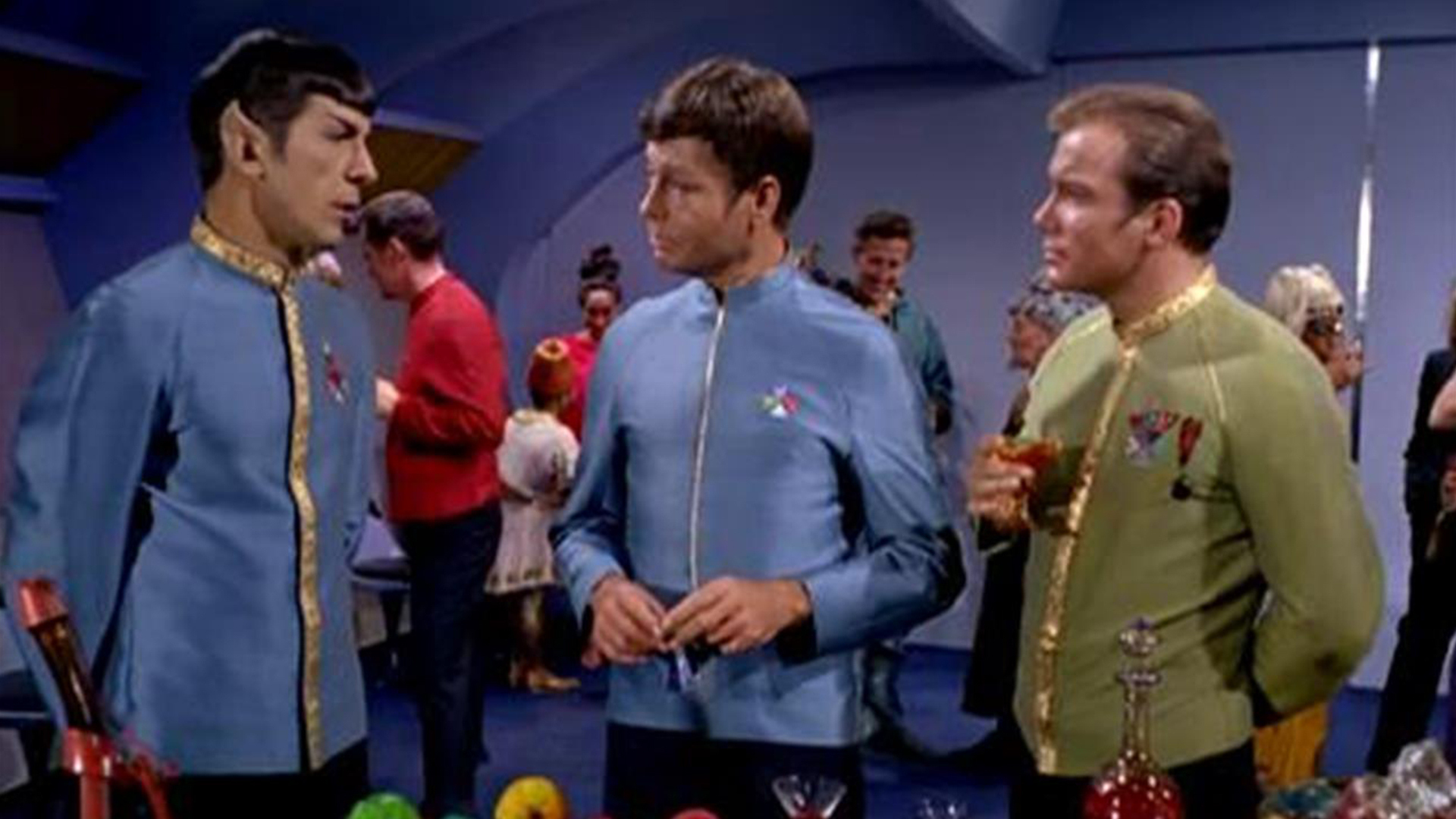
Mark Lenard was an American actor best known for his iconic role as Sarek, the father of Spock, in the Star Trek franchise. Born Leonard Rosenson in 1924 in Chicago, he grew up in Michigan and served in the U.S. Army during World War II before pursuing acting. Lenard had a strong theater background, earning a master’s degree in theater and speech from the University of Michigan and performing in serious dramas by playwrights like Ibsen and Shaw.
His Star Trek appearances spanned the original series, the animated series, several films, and even Star Trek: The Next Generation. Interestingly, he was one of the few actors to play multiple alien roles in the franchise, including a Romulan commander and a Klingon. Beyond Star Trek, Lenard appeared in other TV shows and films, such as Another World and The Greatest Story Ever Told. Despite his many roles, he is fondly remembered by fans as the dignified Vulcan patriarch, bringing depth and warmth to the character of Sarek until his passing in 1996.
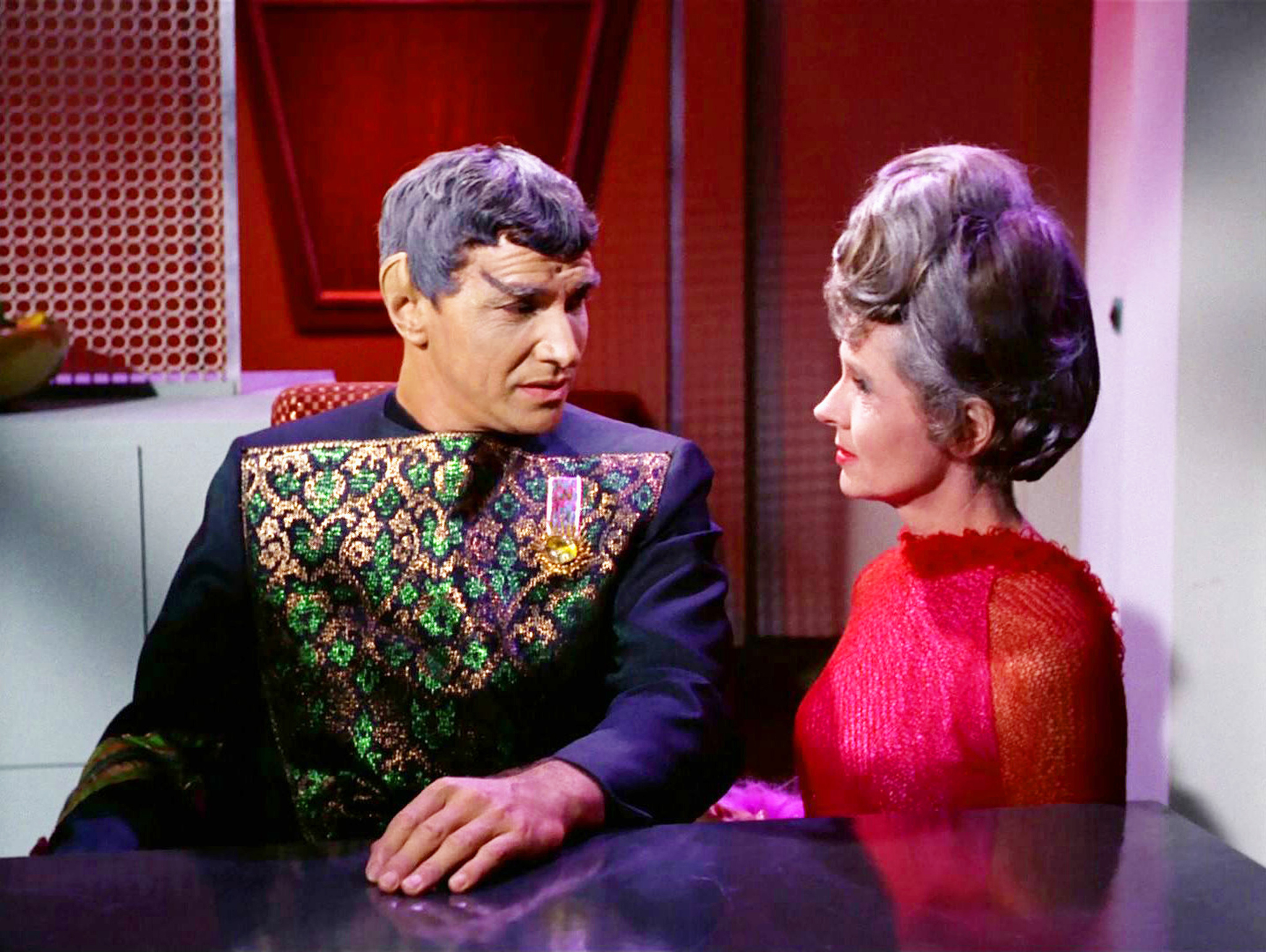
William O’Connell was a notable American actor who began his career remarkably early, finding success at just five years old. He initially appeared in comedies during the 1960s, such as “Way… Way Out” (1966) with Jerry Lewis and “It’s a Bikini World” (1967). O’Connell also made his mark on television, featuring in popular shows like “The Twilight Zone” and “Batman” during the late 1950s and 1960s. His film career spanned several decades, with roles in diverse genres including the Cold War thriller “Ice Station Zebra” (1968), the musical “Paint Your Wagon” (1969), and the western “High Plains Drifter” (1973). He continued acting into the late 1970s and early 1980s, appearing alongside Clint Eastwood in “Every Which Way But Loose” (1978) and its sequel “Any Which Way You Can” (1980). Even into the 2000s, O’Connell remained active, with a role in the dramatic film “Romulus, My Father” (2008). His career reflects a versatile and enduring presence in both film and television over many years.
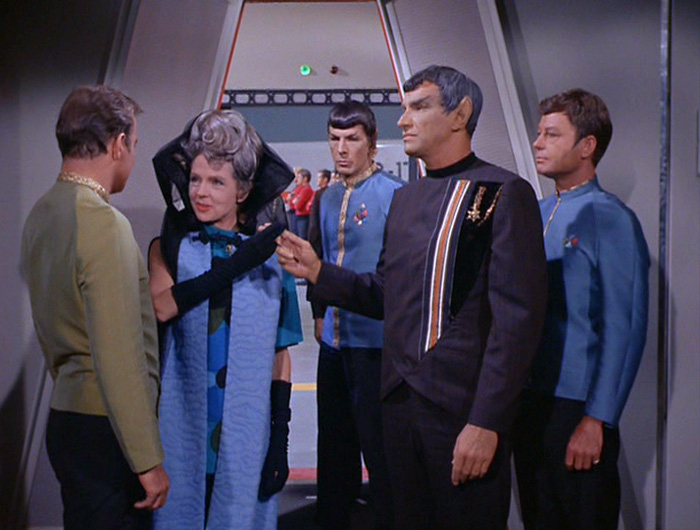
“Star Trek: The Deadly Years” is a memorable episode from the original series’ second season, first aired in 1967. The story kicks off when Captain Kirk and a landing party visit a research station on the planet Gamma Hydra IV, only to discover the crew mysteriously aged and dying. Soon after, the Enterprise crew members who were on the planet start experiencing rapid aging themselves, with their bodies and minds deteriorating at an alarming rate—about 30 years per day. This causes some poignant moments, such as Scotty developing Alzheimer’s-like symptoms and Kirk struggling with forgetfulness and arthritis, which adds a realistic touch to the science fiction drama.
The episode explores themes of aging and competence, especially when Spock questions Kirk’s ability to command due to his declining condition, leading to a tense hearing. Meanwhile, Dr. McCoy races against time to find a cure, which ultimately involves an adrenaline shot that reverses the effects. The episode balances suspense with character-driven drama, showing the crew’s vulnerability but also their resilience. Though some critics feel it leans on clichés about aging, it remains a thought-provoking and emotional installment that highlights the human side of the Star Trek universe.
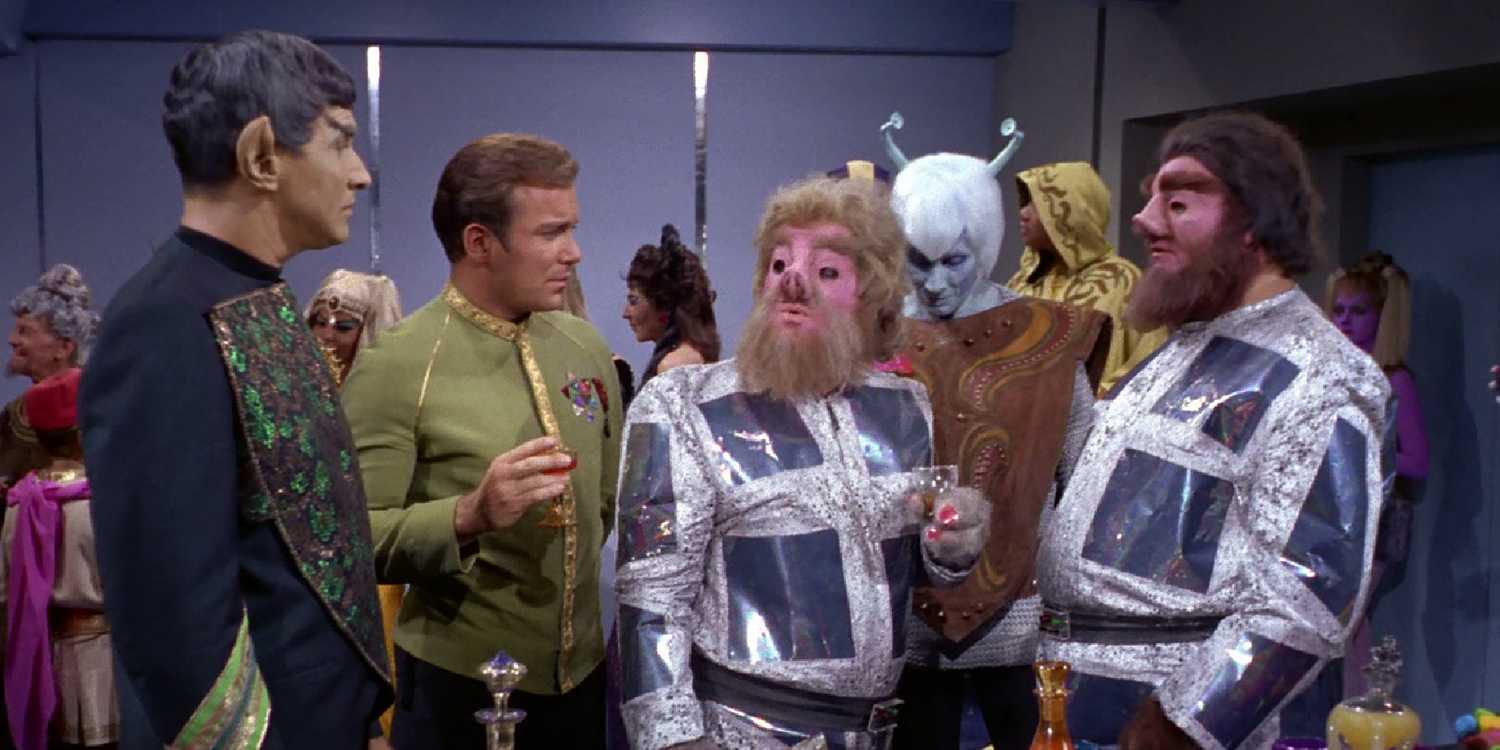
“Friday’s Child” is a classic episode from Star Trek: The Original Series that aired in 1967. It follows Captain Kirk, Spock, Dr. McCoy, and a redshirt as they beam down to the planet Capella IV, where the Federation wants to establish mining rights. The planet’s inhabitants, the Capellans, are primitive and embroiled in a tribal power struggle, complicated by the presence of a single Klingon agent stirring trouble. The story gets intense when the tribal leader Akaar is killed, and his pregnant wife Eleen, played by Julie Newmar, becomes a key figure as she tries to protect her unborn child amidst the chaos.
The episode is notable for blending political intrigue with a tense survival story. Kirk and his team have to navigate the dangerous tribal customs, including the Capellan rule that babies belong to the men, which causes Eleen to fight fiercely for her child. Meanwhile, the Enterprise crew faces a Klingon trap, adding to the tension. Despite some criticism about the portrayal of Klingons and the Federation’s role, the episode delivers memorable moments like Kirk and Spock crafting bows and arrows to defend themselves and McCoy assisting in a dramatic cave birth. It’s a mix of adventure, diplomacy, and a bit of classic Star Trek moral complexity.
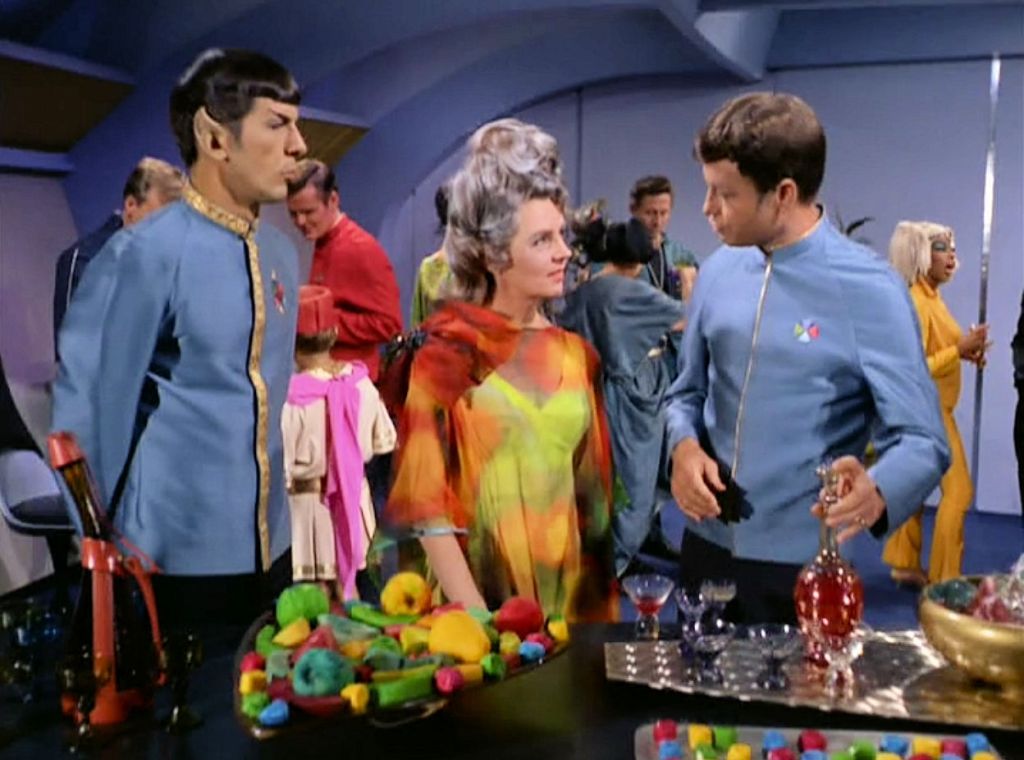
The Star Trek: Deep Space Nine episode “Babel” is a fascinating story where a biological weapon causes the station’s population to lose their ability to communicate properly. It centers on Chief O’Brien, who accidentally activates a device hidden in a food replicator, releasing a virus that induces aphasia—making people speak gibberish and struggle to understand language. This virus quickly spreads across the station, causing chaos and a dangerous fever, forcing the crew to quarantine Deep Space Nine to contain the outbreak.
The episode cleverly references the biblical Tower of Babel myth, where a unified language was confused to stop humanity’s grand ambitions. Here, the virus disrupts communication, highlighting how vital language is for cooperation and survival. The virus was actually engineered by a Bajoran terrorist during the Cardassian occupation, adding a layer of political tension to the story. The crew’s struggle to solve the crisis while dealing with the breakdown in communication makes “Babel” a tense and memorable episode that blends sci-fi thriller elements with character-driven drama.
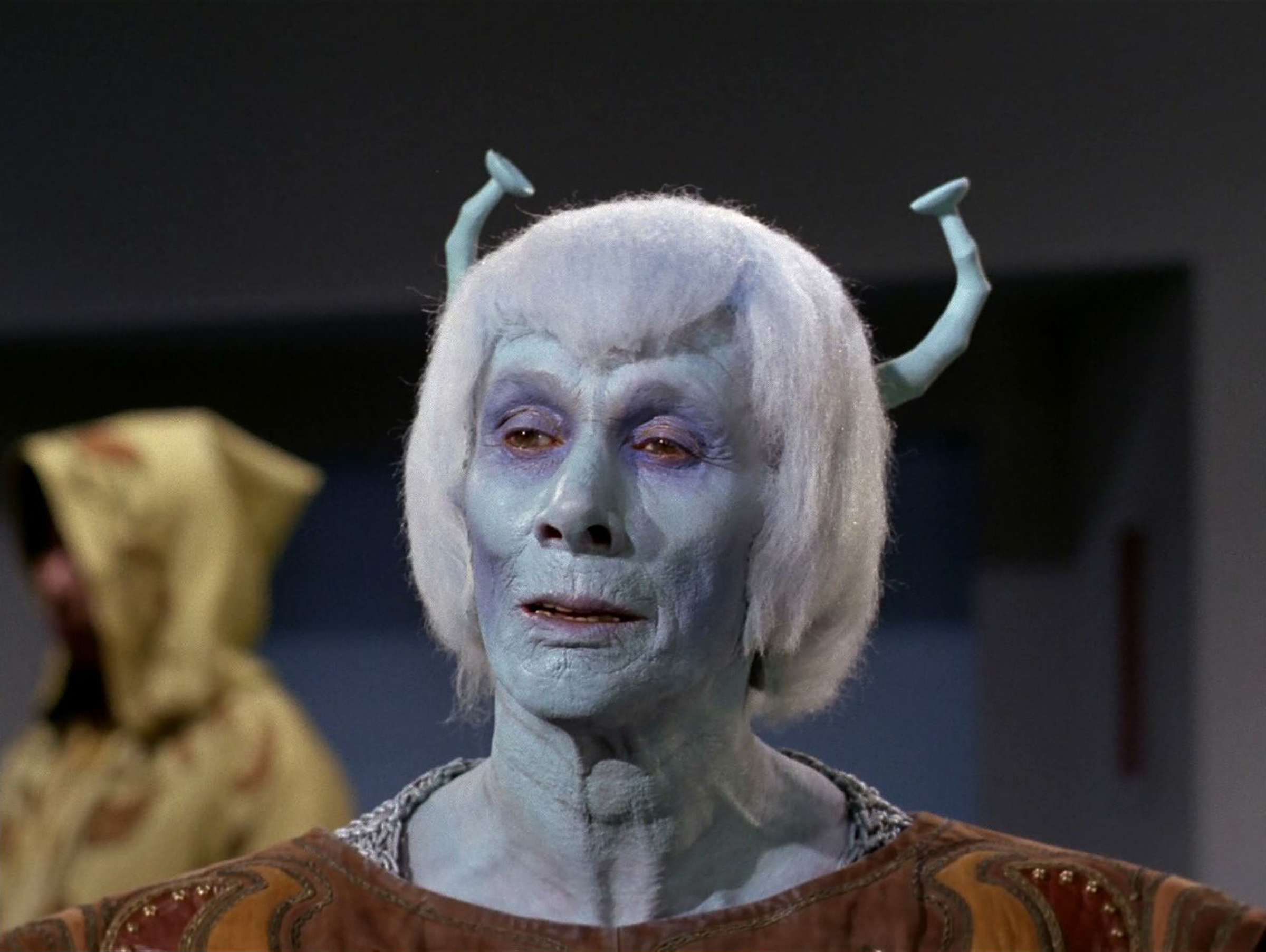
In conclusion, “Journey to Babel” stands as a pivotal episode in the Star Trek franchise, expertly blending character development with political intrigue. It not only deepens our understanding of Spock’s background and his complex relationship with his parents but also showcases the intricate dynamics of interstellar diplomacy. The narrative effectively highlights themes of family loyalty versus duty, as well as the struggles faced by individuals caught between differing cultures. Ultimately, this episode reinforces Star Trek’s enduring legacy of exploring profound moral questions within a framework of science fiction, making it a timeless classic for fans and newcomers alike.